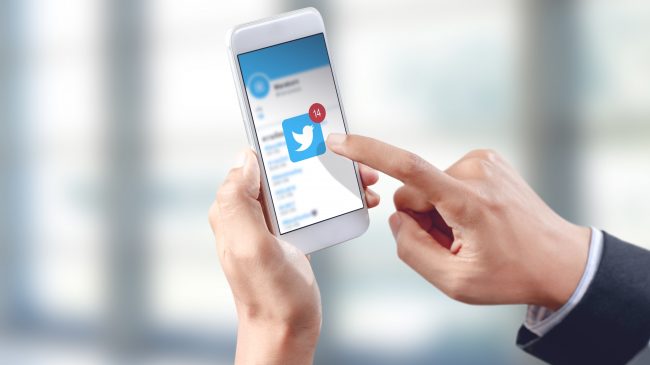After last week’s attack on the U.S. Capitol, Congress impeached President Donald Trump and several social media companies suspended or banned his accounts. Although a number of Republican politicians and conservative voices claim these bans are a violation of the First Amendment right to free speech, they’re wrong. These private companies are completely within their rights to ban whomever they choose, including the sitting president.
Twitter, which is one of Trump’s preferred methods of communication, said, “We have permanently suspended the account due to the risk of further incitement of violence.”
Twitter feared its platform might be used to mobilize rioters and that a continuation of Trump’s rhetoric could lead to more violence. Twitter CEO Jack Dorsey followed up with a thread where he tweeted, “I believe this was the right decision for Twitter. We faced an extraordinary and untenable circumstance, forcing us to focus all of our actions on public safety. Offline harm as a result of online speech is demonstrably real, and what drives our policy and enforcement above all.”
At Facebook, co-founder Mark Zuckerberg wrote in a post, “We believe the risks of allowing the President to continue to use our service during this period are simply too great. Therefore, we are extending the block we have placed on his Facebook and Instagram accounts indefinitely and for at least the next two weeks until the peaceful transition of power is complete.”
Trump and his supporters can disagree, but social media companies are free to take steps they think are in their best interests and/or the public’s best interests. As former Rep. Justin Amash put it: “The First Amendment prohibits government censorship and protects private censorship. In a free society, Twitter and Facebook are allowed to make horrible decisions with respect to content moderation, and you are allowed to tell them off and use another service.”
Some users had done that, moving to platforms like Parler before it got banned by every web hosting service during the post-Capitol riot social media reckoning. Is it worrying to see the president removed from social media platforms? Yes, especially for activists, protesters and others. Even Twitter’s Dorsey voiced concerns about the precedent that removing Trump sets.
It is extremely concerning as to how much power social media has to silence any voices it pleases. As the American Civil Liberties Union’s Senior Legislative Counsel Kate Ruane put it, “President Trump can turn to his press team or Fox News to communicate with the public, but others — like the many Black, Brown, and LGBTQ activists who have been censored by social media companies — will not have that luxury. It is our hope that these companies will apply their rules transparently to everyone.”
Hopefully, social media companies will provide clear rules for what is allowed on their platforms and the consequences for breaking those rules. But, ultimately, Twitter and Facebook are private companies that can make their own choices, including who they allow on their platforms.
And, as the ACLU correctly notes, the president certainly isn’t being censored. At any time, Trump could choose to walk into the White House briefing room or onto the White House lawn, where there would be numerous media networks ready to broadcast and stream his words.
For conservatives who think social media companies should be forced to give Trump a platform, just like a bakery in Colorado can choose not to serve a gay couple, Twitter can refuse services to the president. And it should remain this way. If the social media platforms were under government control or more heavily regulated, it would lead to real censorship at the hands of whichever political party is in power and would ultimately result in true abuse of First Amendment rights.
This wave of de-platforming adds complexity to the ongoing Section 230 conversation. Section 230 protects Internet companies from liability for third-party speech taking place on their platforms unless it is part of illegal activity. President Trump has consistently and incorrectly called for its repeal, claiming it allows for conservative voices to be silenced.
The incoming Biden administration also dislikes Section 230, though for different reasons. President-elect Joe Biden has said he’s interested in doing away with it because he sees it as giving Facebook an “exemption that they cannot be sued for knowingly engaged on, in promoting something that’s not true.”
Ultimately, conservatives should be defending the right of private companies to make their own choices. Without Section 230, conservative voices would likely have far less reach online. If Section 230 is repealed, social media platforms would face massive legal liability. As a result, they’d be quick to remove posts and actively restrict the speech of their users in order to stay out of legal trouble. Start-up social media companies would also be held to this standard, restricting their ability to grow due to the risks of potentially huge liability cases.
Today, it is even more clear that companies like Facebook and Twitter are a huge part of society and not having access to them can be very disruptive to some — even the president of the United States. But Twitter and Facebook are free to ban whomever they want and it should stay that way.
A version of this column previously appeared in The Daily Caller.


